On July 22nd, the second West-China Philosophy Ph.D. Students’ Academic Forum and second Philosophy Masters’ & Doctoral Forum of Guizhou Province was held at Guizhou University (GZU), with the theme "Chinese Modernization and the Role of Chinese Philosophy."
The opening ceremony was presided over by Chen Yanbo, Dean of College of Philosophy and Social Development at GZU. A number of distinguished scholars delivered thematic speeches at this session.
Qi Si, Vice President of GZU, emphasized the importance of comprehending and elucidating the philosophical implications and ideological content of Chinese modernization. The forum, he said, has grown into a pivotal platform for scholars to exchange ideas, refine their expertise, and enhance their capacities significance, owing to the support of various leaders and the collaborative efforts of affiliated schools and sponsoring institutions. He hoped that everyone would continue to support the advancement of philosophy at Guizhou University, strengthen exchanges and cooperation, and collectively contribute to the nurturing of philosophical talents in the western region.
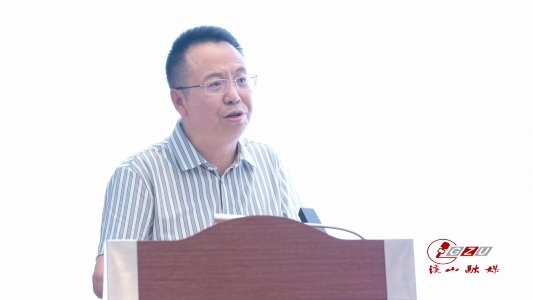
Haoli Xin, a renowned "Cheung Kong Scholar" and Dean of Mingde College at Renmin University of China, posited a philosophical perspective on understanding Chinese modernization: to comprehend the theoretical, historical, and practical underpinnings of Chinese modernization in the context of global historical processes and international comparisons; to understand the characteristics and essential requisites of Chinese modernization based on China’sspecific situation and traditional Chinese culture; and to elucidate the philosophical rationale behind Chinese modernization, encompassing its theoretical veracity, historical inevitability, and practical correctness.
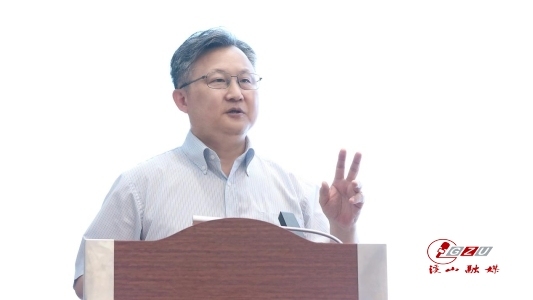
Zhang Xueli, a national luminary in philosophy and social sciences under the national "Ten Thousand Talents Program," and Dean of the Guizhou Academy of Social Sciences, emphasized that philosophy is a discipline that explores human thought and existential value. He highlighted that despite the challenges contemporary philosophy faces, we can create an academic discourse system with distinctive Chinese characteristics and international influence, thereby contributing wisdom and strength to the social progress, by exploring new research areas and disciplinary boundaries, forging innovative concepts, research paradigms, talent training models, and evaluation systems.
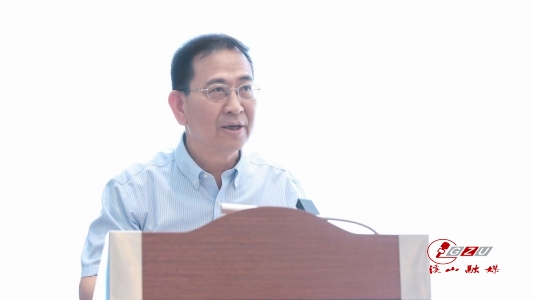
Xu Qi, Vice President of the International Confucian Association and President of Guizhou Philosophy Society, provided an overview of the general development trajectory of philosophy in Guizhou and underscored the immense effort it took to achieve the current progress. He held that philosophy has three distinct relationships with its era:
1.Pre-temporality: Philosophy guides the times and envisions the future.
2.Non-temporality: It transcends time and takes a holistic view, offering a transcendent perspective when contemplating temporal issues.
3.Anti-temporality: It embodies the essence of the zeitgeist but is not a mere echo of the times, providing a strong questioning and critical function within the era.
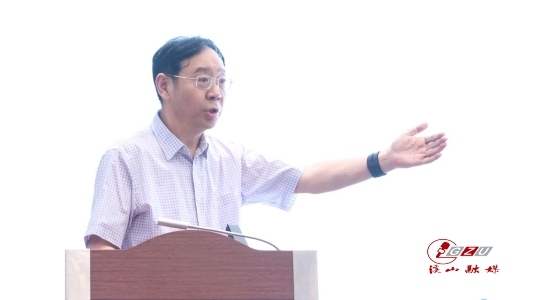
Duan Jifu, Dean of the Philosophy School at Southwest Minzu University, said the goals of establishing West-China Philosophy Ph.D. Students’ Academic Forum is to unite the philosophical peers in the western areas of China and to offer a platform for high-level talent training in this field. He expressed his gratitude for the meticulous preparations by Guizhou University and the robust support of all sponsoring and organizing units. He hoped that, with joint efforts, this Forum would become a renowned brand for high-level talent training in philosophy, thanks to the collaboration of the six institutions with philosophy Ph.D. programs in West China.

Zhang Yunhong, Secretary of the Party Leadership Group and Vice Chairman of Guizhou Provincial Federation of Social Sciences, pointed out the great potential for us Philosophers, social scientists, and young students to contribute to philosophical studies at this crucial period of era. The theme of the forum, said Zhang, aligns well with President Xi Jinping's concerns about the development of philosophy and social sciences in our country. He emphasized the importance in integrating a Chinese-specific philosophical theory system with the practice of Chinese-style modernization. We should expedite the construction of Chinese characteristic philosophical and social scientific disciplines, academic systems, and discourse systems based on the requirements of the new era and the concrete situation of China, said he.
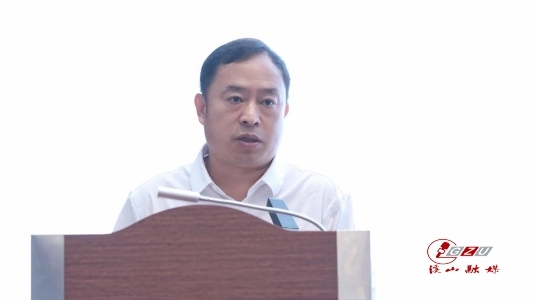
Then followed by the keynote speech session, chaired by Mei Qijun, Deputy Dean of College of Philosophy and Social Development at GZU. At this session, six professors delivered thematic speeches.
Professor Yu Yue from Philosophy Department of Sichuan University presented on the evolution of "family philosophy" in German classical philosophy. Wang Junjie, Director of the Ethics Research Office at Southwest University, delved into the interpretations of the "Book of Changes" by significant figures from Song and Ming Confucianism. Professor Chen Ximeng from Philosophy Department of Xi'an Jiaotong University discussed the shift from "technology ethics" to "ethical technology" in contemporary Chinese ethical governance. Professor Chen Qun from Philosophy Department of Guizhou Normal University highlighted Mou Zongsan's foundation of Confucianism rooted in Zhu Xi's Neo-Confucianism. Professor Zhang Ke from Philosophy Department of Guizhou University explored Heidegger's perspective on the inevitable dialogue between Eastern and Western thoughts, and Duan Jifu discussed modern Neo-Confucianism and the establishment of the modern paradigm of Chinese philosophy.
In the group discussion, this forum featured eight panels where experts provided targeted feedback on the presented papers, addressing questions and explaining key aspects of paper writing.
Following that, the award committee convened and selected the outstanding papers submitted. A total of 8 first prizes, 16 second prizes, and 34 third prizes were awarded. The award ceremony and closing ceremony took place at Guizhou University on the morning of the 23rd. Qi Si delivered closing remarks, in which he deemed the event as a great success with its high esteem, relevance to the era and enhanced communication with over 20 esteemed scholars and 230 students from 41 domestic and international universities present at it.
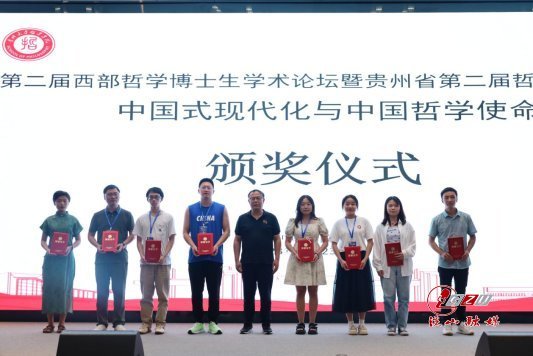
Editor: Yin Zixi
Chief Editor: Li Xufeng
Senior Editor: Yan Nan
Translator: Xiao Qi